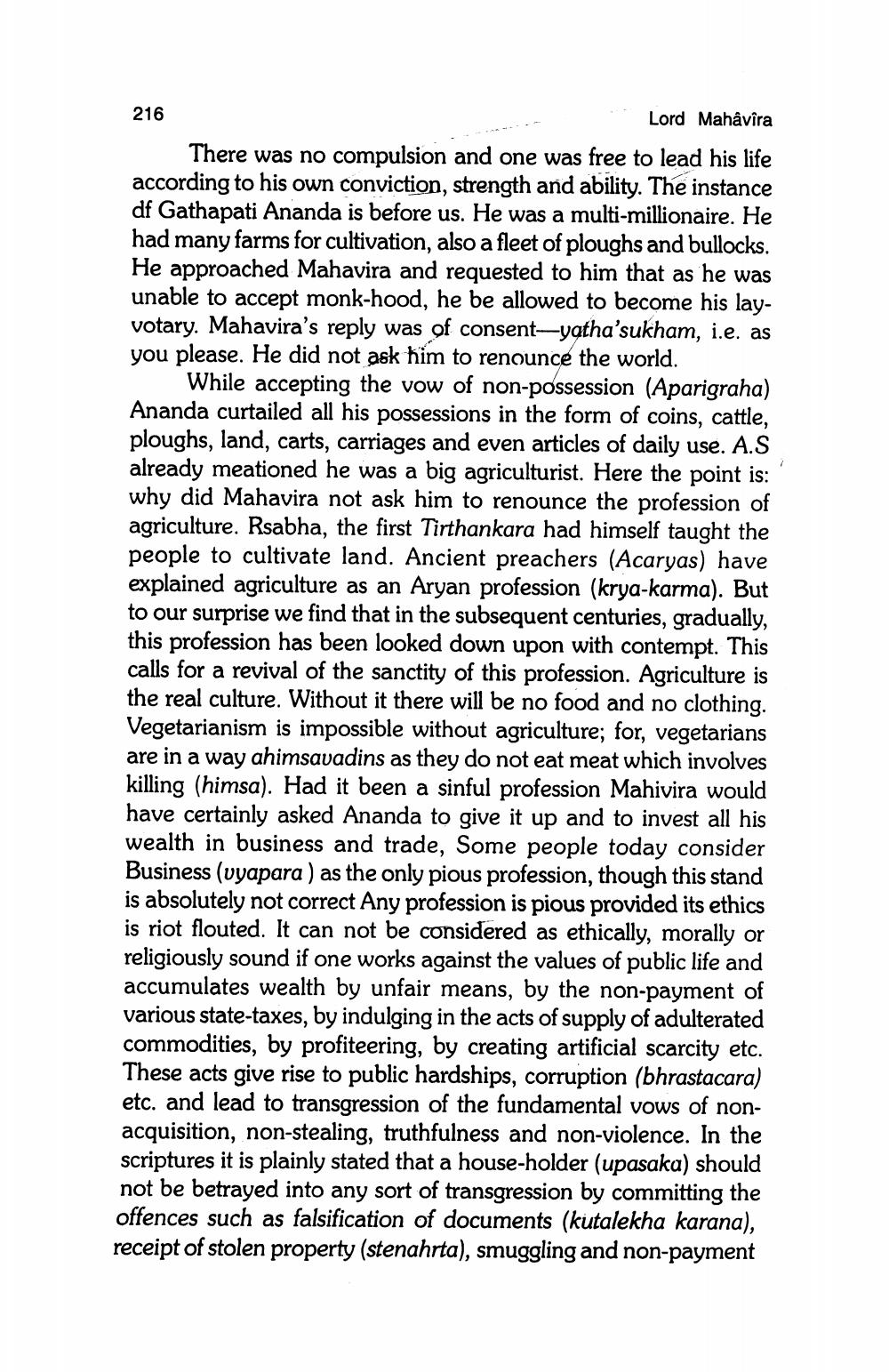________________
216
Lord Mahâvîra
There was no compulsion and one was free to lead his life according to his own conviction, strength and ability. The instance df Gathapati Ananda is before us. He was a multi-millionaire. He had many farms for cultivation, also a fleet of ploughs and bullocks. He approached Mahavira and requested to him that as he was unable to accept monk-hood, he be allowed to become his layvotary. Mahavira's reply was of consent-yatha'sukham, i.e. as you please. He did not ask him to renounce the world.
7
While accepting the vow of non-possession (Aparigraha) Ananda curtailed all his possessions in the form of coins, cattle, ploughs, land, carts, carriages and even articles of daily use. A.S already meationed he was a big agriculturist. Here the point is: why did Mahavira not ask him to renounce the profession of agriculture. Rsabha, the first Tirthankara had himself taught the people to cultivate land. Ancient preachers (Acaryas) have explained agriculture as an Aryan profession (krya-karma). But to our surprise we find that in the subsequent centuries, gradually, this profession has been looked down upon with contempt. This calls for a revival of the sanctity of this profession. Agriculture is the real culture. Without it there will be no food and no clothing. Vegetarianism is impossible without agriculture; for, vegetarians are in a way ahimsavadins as they do not eat meat which involves killing (himsa). Had it been a sinful profession Mahivira would have certainly asked Ananda to give it up and to invest all his wealth in business and trade, Some people today consider Business (vyapara) as the only pious profession, though this stand is absolutely not correct Any profession is pious provided its ethics is riot flouted. It can not be considered as ethically, morally or religiously sound if one works against the values of public life and accumulates wealth by unfair means, by the non-payment of various state-taxes, by indulging in the acts of supply of adulterated commodities, by profiteering, by creating artificial scarcity etc. These acts give rise to public hardships, corruption (bhrastacara) etc. and lead to transgression of the fundamental vows of nonacquisition, non-stealing, truthfulness and non-violence. In the scriptures it is plainly stated that a house-holder (upasaka) should not be betrayed into any sort of transgression by committing the offences such as falsification of documents (kutalekha karana), receipt of stolen property (stenahrta), smuggling and non-payment




